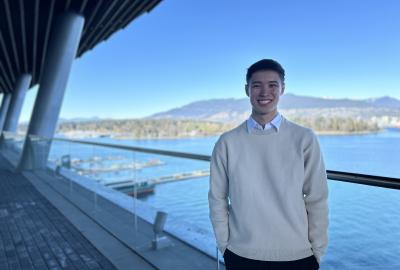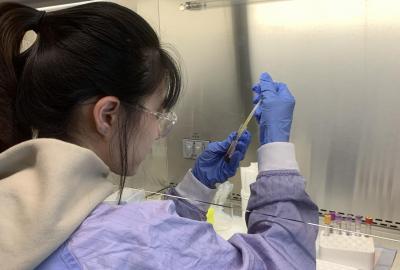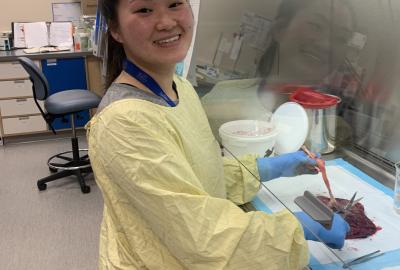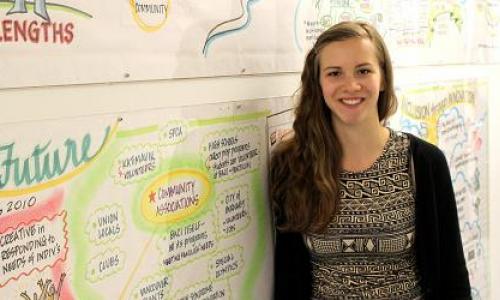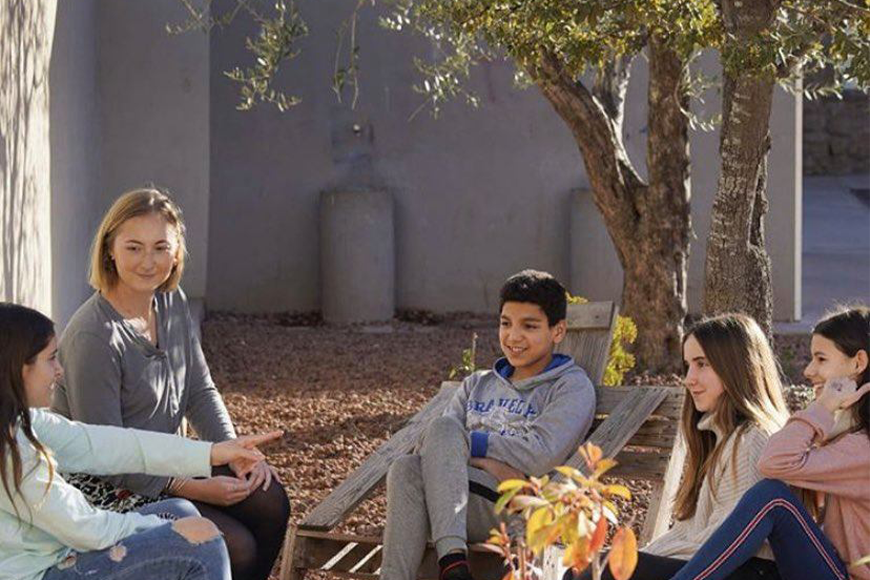
When I committed to a 9-month co-op term teaching in Barcelona, Spain, I could not have fully anticipated the vastly different cultural experience I would have. I expected the heat of the southern location, but not of the political climate, which reached a boiling point on Monday, October 14th, 2019, when political prisoners fighting for the Catalan independence movement were sentenced for an additional 9 to 13 years of imprisonment.
The topic of to what extent Spain is a fair democracy was brought to attention repetitively in this period with posters pasted on every street corner boasting slogans like, “Spain is a fascist state” and “justice for the political prisoners”. It was a topic heavily on the students’ minds, as they eagerly looked towards ways to practice their democratic rights. One student, desperately wanting to have class outside, suggested we put the decision to a vote. An overwhelming amount of hands went up for having class in the sun and I paused to think about how to adjust my lesson plan without a chalkboard. The students saw my hesitation and said, “but Claire, don’t you believe in our right to have a democracy?”.
Protests continued to erupt throughout Catalonia, blocking off Barcelona’s main airport, causing congregations in front of the town hall, and leading to outbursts of frustrated tears in the classroom. Tensions rose throughout the week as I went through the motions of living with a new family, adjusting to a job I had never done before, and trying to understand Catalan while studying Spanish but only being able to speak English. Days started with teachers and members of the community conversing in coffee shops about how the movement was progressing and nights consisted of the news blaring footage of fires being lit by protesters.
The protests were mobile: people were updated with the constantly changing location through private Telegram groups (a messaging app) and public resistance pages with a strong social media presence. Tsunami Democracy updates its followers daily with information about where the protests are taking place: a concert on the border between France and Spain, a march with hundreds on the main highway, or a camp out in front of the governmental buildings in Barcelona. With thousands of active and complying members, I watched as the classes I taught that week thinned to a few in attendance. And then, none at all. The students took to the streets, joining in the movement.
Amidst the chaos of the protest movement, empty classrooms, and shut down highways left me with a feeling of isolation as I struggled to find other university students. I wanted to learn about the historical implications of what was happening in Catalonia and empathize with the local community, but the differences in language initially made it difficult to form deep connections. Meanwhile, I began to question my role as an international teacher. It was the first time I found myself without the ease of a student community to connect with. I didn’t have the activities I enjoyed doing, I wasn’t studying what I was accustomed to, and I didn’t have the simplicity of communicating in my first language. I was wondering who I was without friends, family or doing the things I loved to do. How was I to identify with others when I no longer felt identified with myself?
The remote nature of the Catalan town meant that the people that live here often didn’t hear English in public spaces. Strangers began turning around on the street when they heard English and ask if I knew so and so from such and such, “They speak English and are from India, England, Colombia, France, Brazil. They just moved here too!”. I started collecting phone numbers and adding them to a WhatsApp group. The group grew from 5,10 and then 20 members and was aptly titled “UNESCO” (United Nations Educational, Scientific and Cultural Organization.) The joke came from the diverse representation of the group members who had much to teach each other about their individual cultures while partaking in a collective understanding of Catalonia. I began to feel more comfortable in my role as an expat as I learnt more about English and what it means to be Canadian, redefining myself through learning about other points of view.
Beyond the community of expats that I willfully forged using social networking apps and the family life of my homestay, my connection to the local culture and community was through the students that I teach. Between the ages of 13–15, my students were eager to share the culture of Catalonia with me. I participated in festivals and holidays with the school, such as La Castanyada (the Halloween of Catalonia in which the entire school hiked through the nearby mountains to a castle and played games for the afternoon) or La Santa (a day of dance in which students learned salsa and bachata in the towns courtyard and performed inside of a hot air balloon).
Teaching has been as much an experience in sharing knowledge in the form of language as it has been in the form of receiving knowledge about intercultural differences. Students translate words into Spanish and Catalan, share opinions on local issues and the political climate, speak about global issues and broaden their English vocabulary with enthusiasm. With the school being open minded in their approach to education, I am able to structure classes by having debates on topics and asking students to respond using new grammatical techniques they are learning or by playing creative games using new vocabulary. Teaching classes in this way has been an education in how opinion derives from cultural context and how thought forms from language. Hearing students speaking in English and thinking in Catalan and Spanish has given me a greater understanding in my education of Spanish and Catalan through observing the mistakes in grammar that are recurring. By students continuously putting the adjective after the noun, by dropping the word “do” or mixing up genders when referring to their parents, I was able to learn how a sentence is structured in Spanish, that there is no word for “do” and that there is no neutral gender when referring to a group of people.
Working in another country has given me the opportunity to bring the framework of international communication strategies that I have been building in class into a professional setting. The leadership, confidence, patience and public speaking skills that I continue building in the classroom when working abroad will inform how I will approach my future professional and academic career path.] With the intention of bettering the world through effective communication, I am now taking the time to understand it.
Beyond the Blog
-
To learn more about international co-ops, visit their page here!



